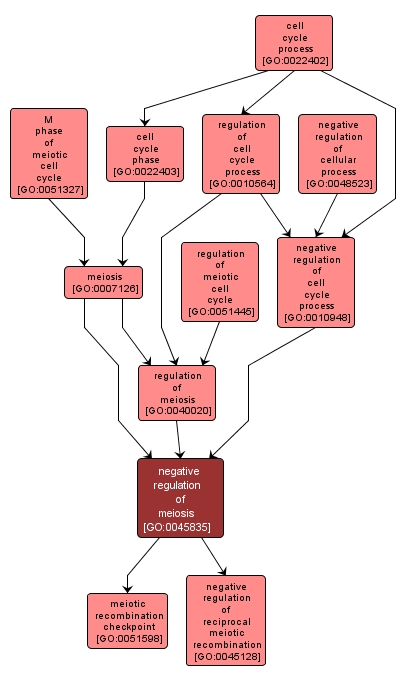GO TERM SUMMARY
|
| Name: |
negative regulation of meiosis |
| Acc: |
GO:0045835 |
| Aspect: |
Biological Process |
| Desc: |
Any process that stops, prevents or reduces the frequency, rate or extent of meiosis. |
Synonyms:
- downregulation of meiosis
- inhibition of meiosis
- down-regulation of meiosis
- down regulation of meiosis
|
|

|
INTERACTIVE GO GRAPH
|














